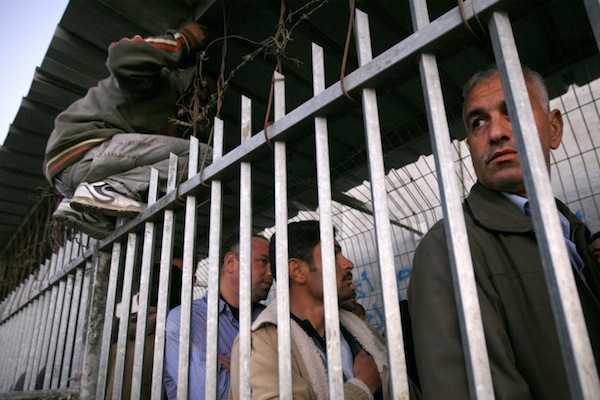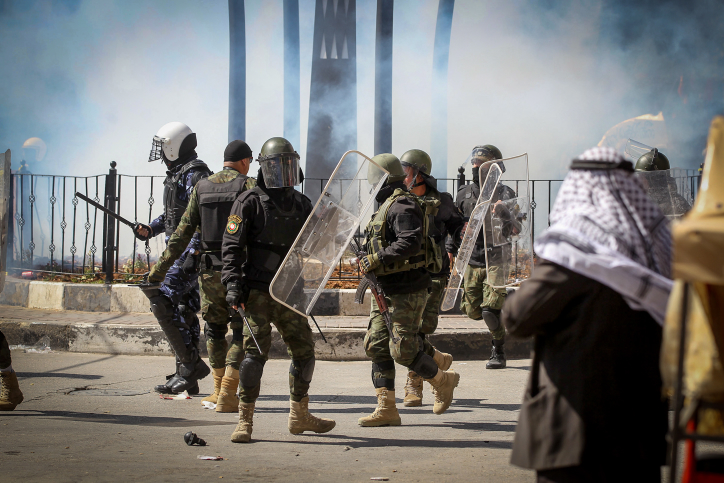The reality in the West Bank is one that resembles a prison, where the prisoners are held for as long as humanly possible. Their release will carry a price — and Israelis are not willing to pay it.

The Knesset passed a law Monday night denying entry visas or residency rights to foreign nationals who call for boycotts against Israel or the settlements. The law won’t have much of an affect on entry into Israel proper, but rather will mostly affect those trying to enter the West Bank — a solid reminder that the ban is yet another example of the way Israel holds Palestinians prisoners. After all, one can assume that most people who enter the Palestinian territories oppose the settlements or support some version of the boycott.
Because Israel controls every point of entry into areas under Palestinian control in the West Bank, Palestinians cannot leave (without a permit) or come back (without a permit). With the passage of the law, they are no longer allowed to have visitors. In other words: they are prisoners, and these restrictions are just the tip of the iceberg.
Like a prison commissary, Israel allows the majority of the prisoners to manage their own affairs through the Palestinian Authority. This arrangement is maintained as long as the prisoners don’t act up, and on the condition that they agree to security coordination with Israel. Even if it so desired, the Palestinian Authority could not actually grant Palestinians their rights. Security coordination is a small bonus that decreases the pressure on Palestinian society, given in exchange for Palestinians accepting their status as perpetual prisoners.
In the meanwhile, Israel exports the knowledge, skills, and technology it has acquired through the exerting of control over humans against their will to the rest of the world. These are the kind of goods every leader wants to have — especially with the direction the world is currently going.

This is the situation. There is no peace process, nor is there a real discussion over one state or two states. Even discussions on whether Israel is an apartheid state have become intellectual fodder for Jews and leftists. The reality is one that resembles a prison, and the prisoners will continue to be held by force for as long as possible. Their release, after all, will carry a price — and Israelis are not willing to pay it.
The Israeli Left has no role in this story. The proposals put forth by the majority of Israel’s leaders, including Zionist Union head Isaac Herzog’s 10-point plan, are variations on the prison theme (these plans often more closely resemble the Gaza prison than the one in the West Bank). No Palestinian will buy this, which is why none of these plans will ever be implemented, and perhaps for the better. The only real solution will have to include doing away with this prison entirely and giving Palestinians their freedom in any agreed-upon framework — whether one state, two states, or a confederation. Very few Israelis are currently ready to do that.
This article was first published in Hebrew on Local Call. Read it here.


